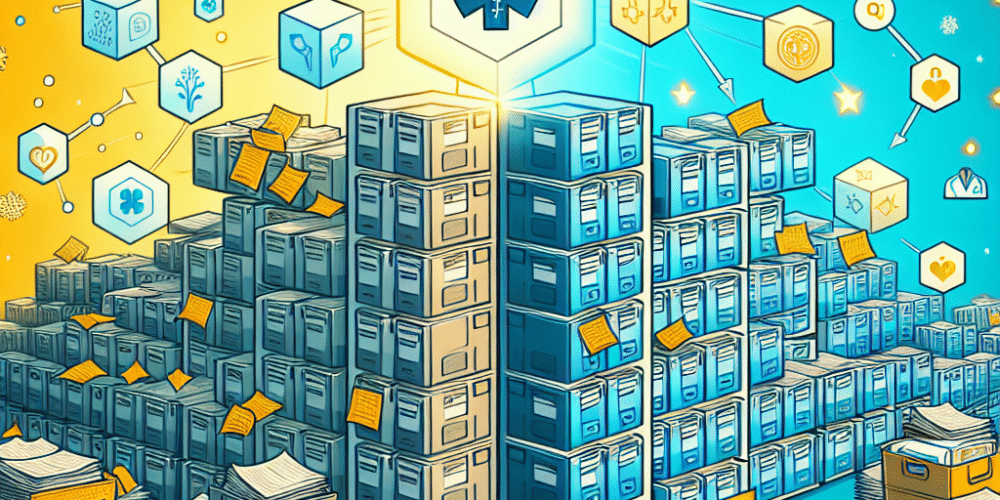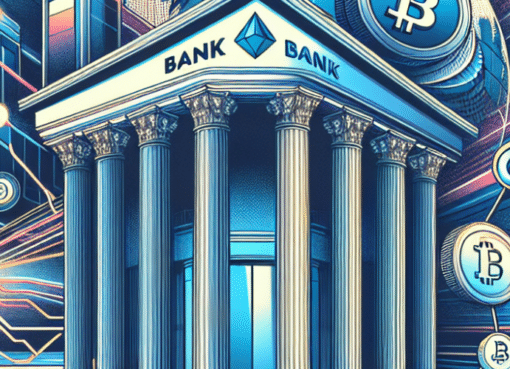In an unprecedented move, a leading healthcare consortium announced earlier this week its plans to adopt blockchain technology to enhance the security and accessibility of medical records. The initiative, spearheaded by Global Health Solutions, is set to revolutionize the way medical data is stored, accessed, and shared across the board.
Blockchain technology, primarily known for its application in securing financial transactions, is increasingly gaining traction in diverse fields, including healthcare. The technology’s inherent features—decentralization, immutability, and transparency—make it an ideal solution for addressing some of the most pressing challenges in healthcare data management.
Why Blockchain?
The traditional methods of storing medical records are fraught with challenges. These include issues related to data breaches, unauthorized access, and the loss of patient data through system failures. Blockchain technology offers a robust alternative, with its decentralized ledgers providing a secure platform for recording and sharing information. Each ‘block’ in the chain contains a timestamp and a link to the previous block, creating a chronological data chain that is extremely difficult to tamper with.
Moreover, blockchain enables the creation of a patient-centered model where individuals have control over who accesses their medical records. This not only enhances privacy but also improves the coordination and continuity of care as patients move across different healthcare providers.
The Global Health Solutions Initiative
The initiative by Global Health Solutions involves forming a blockchain network that will include hospitals, clinics, and insurance companies. The consortium plans to begin the deployment in the United States, with a pilot program targeting major hospitals in New York, California, and Texas.
“Adopting blockchain technology will allow us to create a more secure, efficient, and patient-focused healthcare record management system,” stated Dr. Lisa Trench, CIO at Global Health Solutions. “It will reduce administrative costs, decrease the chances of data breaches, and most importantly, enhance the quality of care by providing accurate patient data in real-time.”
Technical and Regulatory Challenges
Although the advantages of integrating blockchain into healthcare are numerous, the transition faces significant technical and regulatory challenges. These include ensuring the interoperability of blockchain systems with existing electronic health records (EHR) systems, and navigating a complex landscape of health information privacy regulations.
To overcome these challenges, Global Health Solutions is collaborating with technology partners and regulatory experts to ensure the system adheres to HIPAA and other relevant privacy laws while maintaining the technical efficacy of the blockchain solution.
Potential Impact and Future Prospects
The successful implementation of this blockchain-based system could set a precedent for the global healthcare industry. It promises not only to secure medical records but also to facilitate the seamless exchange of valuable health information across various stakeholders, leading to better health outcomes for patients.
Healthcare analysts predict that blockchain technology could save the industry up to $100 billion annually by 2025 in data breach-related costs, IT costs, operations costs, support function costs, and personnel costs, as well as through reductions in fraud and counterfeit products.
Conclusion
As we move towards a more digitalized world, the safeguarding of medical data becomes crucial. Blockchain technology offers a promising solution to the persistent issues of data security and privacy in healthcare. The initiative by Global Health Solutions marks a significant step forward in the adoption of this technology in a sector that impacts the lives of millions.
This move could herald a new era of secure, efficient, and patient-oriented healthcare systems, potentially transforming how medical data is handled globally. As with any technological adoption, the road ahead will involve navigating through technical challenges and regulatory landscapes, but the potential benefits could well justify the effort involved.
As the healthcare industry continues to evolve, blockchain technology could play a pivotal role in shaping its future, making medical data management more secure, private, and efficient. Keep your eyes on this space for more updates as this groundbreaking initiative unfolds.




